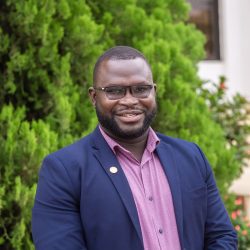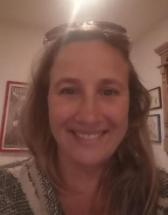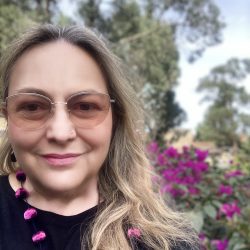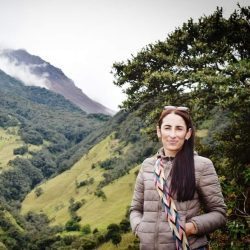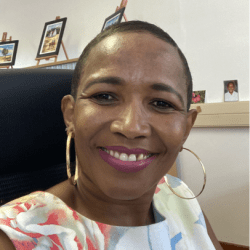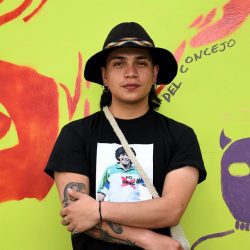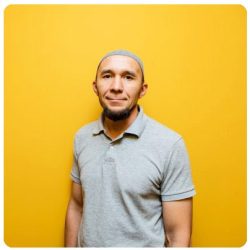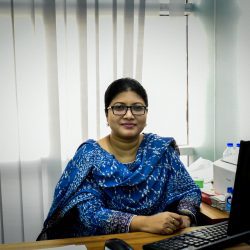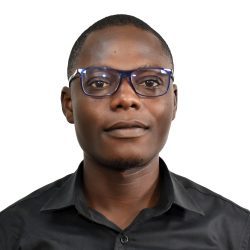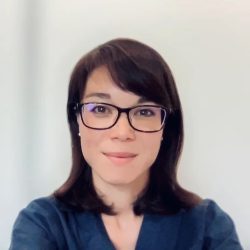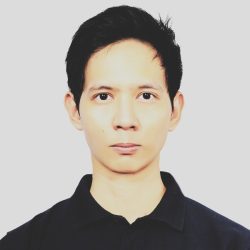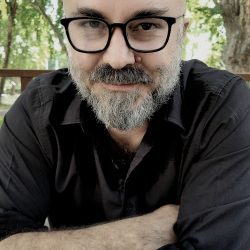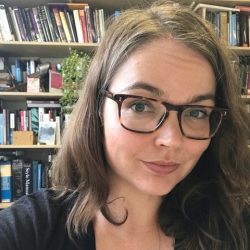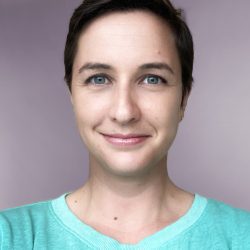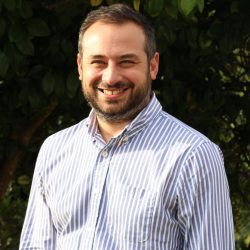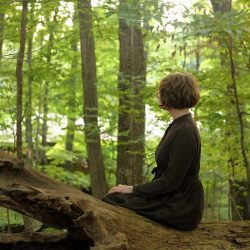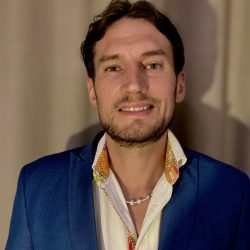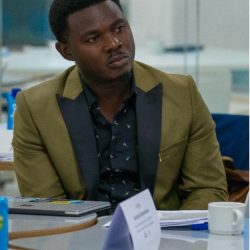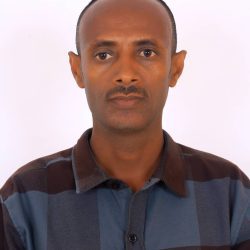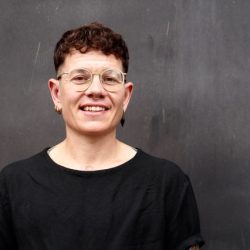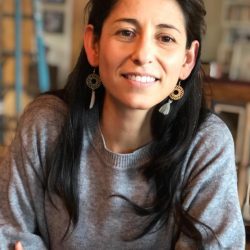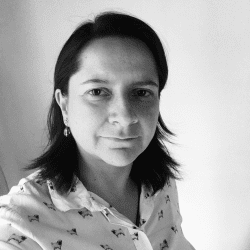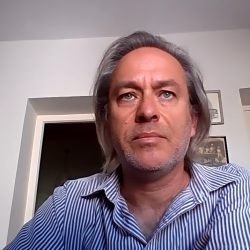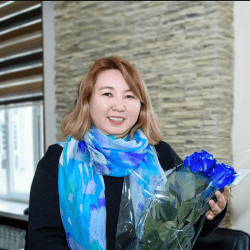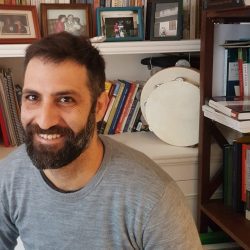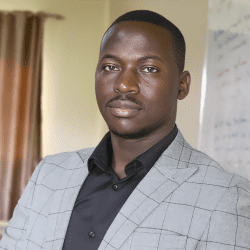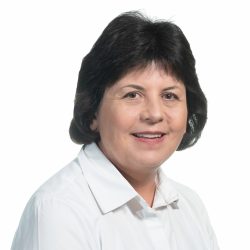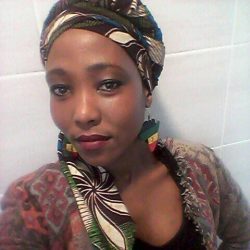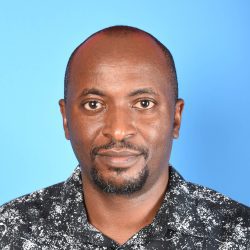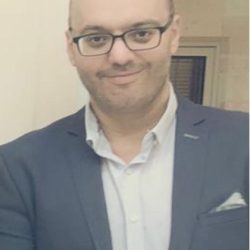Amplifying the Voices of Engaged Researchers Around the World
Talloires Network of Engaged Universities and Open Society University Network (OSUN) have awarded 28 grants to faculty and graduate students in 16 countries to support their engaged scholarship. Affiliated with TN and OSUN member institutions, the faculty and graduate students will work to develop long-term, sustainable community partnerships as a central part of their research, with a goal to develop shared knowledge about issues that align with TN and OSUN priorities. Engaged scholarship is important because it is a practice that facilitates the development of civic capacities – such as courage, humility, and empathy – in university students, staff, faculty, and community partners.
This joint TN-OSUN effort, dubbed “Amplifying the Voices of Engaged Researchers Around the World,”seeks to create and support a growing community of practice for engaged researchers. When engaged scholars reflect on their civic experience, they acknowledge the political dimensions of complex challenges and actively deconstruct oppressive systems of power. In many instances, reflection on action awakens a desire to be in solidarity - to be an integral part of a group. A community of practice for engaged scholars is a third space, beyond the local community and the university, where durable relationships of common knowing and cause may be cultivated across geo-political boundaries. It is a space for movement-building.
This community of practice will meet regularly to share ideas and strategies for engaged scholarship across geo-political boundaries, create new and lasting ties among engaged researchers, and organize online workshops for engaged scholars around the world. They will also receive individual support and mentorship for their community-based projects as needed. Researchers have also published blog posts to reflect upon their Engaged Research here.
We invite you to learn more about the engaged researchers and their community-based research (below) and learn more about the previously awarded engaged researchers and their community-based research here.
2023 - 2024 Cohort
Austin Dziwornu Ablo is a Senior Lecturer at the Department of Geography and Resource Development, University of Ghana, Legon. He held fellowship positions at the School of Geosciences, University of South Florida, Center for the Humanities, Washington University in St Louis, Missouri and Institute of Geography, University of Bergen, Norway. With disciplinary background in Human Geography, Austin draws upon relational perspectives, political ecology, political economy as well as organisational and institutional approaches to explore human-environment interactions at multiple scales. With over 10 years of research experience, Austin focuses on urban governance, natural resource governance, energy, rural-urban linkages, and agriculture. Some of his recent projects are the Norwegian Research Council Funded Project on private urbanism in Accra, Johannesburg, and Maputo. Deploying the concept of enclaves, the project examines the co-production of new forms of urban housing and the management of social inequality. The project traces the emerging cultural orientation and political predisposition that structure contemporary urban practices across the globe. Austin also completed the International Science Council funded LIRA-Africa project that explored wastewater reuse acceptability in Accra and Johannesburg. Here they sought to answer the question of whether, and how, water re-use can address existing demand-supply gaps for water. By delineating criteria for acceptance of reclaimed water from a risk paradigm, the project explores the influence of risk perceptions on the acceptance for various uses, including potable, as the first step to sustainable, demand-driven reclaimed water introduction in these two cities. Austin has published in several international peer reviewed journals.
Peroline (she/her) is a learning support and Special Educational Needs teacher and a founding member of Skills Network, a cooperatively-run collective of women based in South London. As part of Skills Network she has co-led community research that foregrounds the knowledge of those living at the sharp end of inequality in London and tries to make visible the psycho-social challenges of issues they face, such as navigating the welfare system and surviving on low-paid, precarious work (skillsnetwork.org.uk/community-research.html). Her current main research interest is learning from models of education that seek to centre wellbeing, disrupt established hierarchies of knowledge and power and prepare young people to imagine and sustain more cooperative, horizontal and just ways of organizing social life. Because of her background in teaching and community research, Peroline is committed to collaborative and participatory approaches to research and research dissemination. She is currently a PhD candidate at Birkbeck College, University of London in the department of Psychosocial Studies (School of Social Sciences). Her thesis engages with a deeply democratic, cooperative pedagogy developed by a school in the Argentine part of Patagonia, through a collaborative radio and podcasting project.
Mónica Espinosa Arango is Associate Professor of Social and Cultural Anthropology at the Universidad de Los Andes (Colombia). She works in the sub-fields of political and environmental anthropology. The approach called “the double ecology” (ecology of life and political ecology) applies multispecies ethnography and engaged and community based participatory research to questions on the arts of living in complex volcanic lifeworlds in the neotropics. She leads projects on anthropology of life, social memory, and rural women resilience as a member of the interdisciplinary group Ecological History and Social Memory, based at Uniandes. She also works closely with the Flor de Mayo Association along with the active collaboration of rural families inhabiting the vicinity of the Volcanic Complex Doña Juana – Cascabel in Las Mesas (Nariño).
Yenny Gómez is an environmental engineer and technician in livestock production. She holds a master in social and cultural anthropology from the Universidad de Los Andes (2022). Gómez has worked on the implementation of policies and programs concerning livestock production, illegal crops substitution, and the sustainable use of natural resources among rural communities of northeastern Nariño. She is deeply committed to her region and peoples, and has been working on grassroots organization, forest conservation, sustainable development, and peasant identity as part of Flor de Mayo Association, which is working on the recovery of the territorially based biocultural knowledge of women and rural families of Las Mesas.
Dr Heather Legodi is a qualified dietitian, registered with the Health Professionals Council of South Africa. She is currently the Head of Department and Senior Lecturer within the Department of Human Nutrition at University of Pretoria. She qualified with a PhD in Paediatric Nutrition from theUniversity of Witwatersrand (Wits) in South Africa. Her research focused on the dietary and lifestyle practices of rural and urban adolescents in South Africa. She obtained a Diploma in Public Health from the University of Pretoria and her Masters Degree from the University of Alabama A&M in the USA. Her Masters thesis focused on the nutritional composition of Shiitake mushrooms. She is an alumnus and former faculty member of the African Nutrition Leadership Programme (ANLP). She is currently the Chair of the Community Engagement Committee within the School of Health Care Science and a member of the Faculty of Health Sciences Teaching and Learning Committee at the University of Pretoria. She also represents the Faculty at the University of Pretoria Community Engagement Forum. Her passion for working with and empowering diverse communities have led her to engage and collaborate with multiple disciplines and stakeholders in making a significant difference. We cannot intervene or assist clients and communities without understanding what factors influence their eating behaviours.
Miguel Angel is a professional in Languages and Cultural Studies from Colombia. He is a researcher on migration, climate change, humanitarianism, development policies, and decoloniality, and collaborates with various social and activist processes in Colombia against mining, and in defense of collective goods, and food sovereignty of the people. He is currently attending Bard College, where he is pursuing a Master's degree in Human Rights and the Arts.
Emil Nasritdinov is an Associate Professor at the Anthropology and International Development department, American University of Central Asia, Kyrgyzstan. He holds a PhD in Urban Planning degree from the University of Melbourne, Australia. His main research and teaching expertise areas are migration, religion and urbanism. His migration expertise is based on research projects conducted on various topics in the remote areas of Kyrgyzstan, in Bishkek and in four Russian cities: Moscow, Saint-Petersburg, Kazan and Yekaterinburg. His main long-term ethnographic field engagement in researching religion is with Tablighi Jamat. In addition, he conducted research and written on following topics situated in Kyrgyzstan: state policy towards religion, Islamic education and madrassas, and Islam and peacebuilding. His research topics on urban life include street youth culture, green spaces, residential neighborhoods, and others. His original training in the field of architecture and urban planning helps him in my urban anthropology pursuits. Emil is a co-founder and director of SILK (Social Innovations Lab Kyrgyzstan) – research center at the American University of Central Asia that works on a diverse range of projects, mostly in the field of urbanism. Emil is also a co-founder and chief editor of Ketmen: International Journal for Central Asian Voices similarly based at the American University of Central Asia.
Sabrina Nourin is a Senior Research Associate at the Center for Entrepreneurship Development, BRAC University, Dhaka. In 2017, she completed her postgraduate research at Monash University Malaysia, where she researched women entrepreneurship in Bangladesh. Her research work focuses on Entrepreneurship in Bangladesh specifically, women in entrepreneurship. Her work centres on the exploration of social norms with social background, with particular attention on culture of research data. Prior to her research experience, has more than 11 years’ work experience in managing supply chains in Bangladesh. Her most recent work is ‘Stakeholders of sustainability transition Interventions in energy and Bangladesh RMG industry’ in the Routledge book of ‘Strategic Management and Sustainability Transitions Theory and Practice’ By Michael Zhang ed (2023).
Mr. Samuel Mahugnon Ahossouhe is a PhD student in the field of environmental sciences at the International Institute of Water and Environmental Engineering (2iE) in Ouagadougou, Burkina Faso. He also holds a master's degree in water and sanitation engineering and has conducted various studies related to the sanitation value chain, inclusive urban sanitation, and other related areas. Currently, Mahugnon is conducting research on the valorization of urban resources for the development of a circular economy in low-income African countries, especially in Burkina Faso. The main expected outcome of his research is to provide scientific knowledge on the potential of urban mine valorization to promote the circular economy, and to guide decision-makers and investors on the business models to implement in their valorization activities for a better economic development. By this way, he’s research contributes to economic development and the reduction of environmental and health issues linked to e-waste management within the Burkinabe communities. Mahugnon has a strong interest in community development and his participation in the USAID's Young African Leadership Initiative (YALI) program and the Next Generation Leaders (NGL) program of the Talloires Network of Engaged Universities has enabled him to hone his skills in developing and leading initiatives of major community importance.
Mia Sasaki currently works as faculty of General Education at Parami University. Mia's first years as an educator were with Teach for America, serving as a teacher in an inner-city school. After studying International Education Development at University of Pennsylvania, Mia has had the honor of working with students from across Asia, teaching in Myanmar, Thailand, and Bangladesh. Prior to Parami, she worked as the Academic Lead for American English Myanmar-Parami English Language Initiative. She has published papers on education in emergencies and on migrant learning centers along the Thai-Myanmar border. Mia's work stems from the belief that students can and do shape a better future.
As a teacher at Parami University-Community Higher Education Initiative (CHEI), Saw Yan Naung creates a safe, welcoming, and comforting learning environment that facilitates students to question and grow. His journey in the field of education is marked by a genuine dedication to empowering students with knowledge and skills that extend beyond the classroom. Prior to his role at Parami University-CHEI, he served as a Senior Program Instructor and Program Coordinator in non-profit organizations within Myanmar's education sector. In these capacities, he developed and facilitated courses for youth, coordinated with diverse stakeholders, including tea-shopowners/managers, local CSOs, teachers, and out-of-school children and youth (OOSCYs) from tea-shops/restaurants and underprivileged communities, and set up non-formal education (NFE) and vocational education classes for OOSCYs, contributing significantly to the enhancement of the quality and accessibility of non-formal education in Myanmar. As an educator, Saw Yan Naung believes in the transformative power of education to unlock the potential within each student. As a commitment to continuous learning and professional development, he is currently pursuing an MA in English Language Teaching (ELT) from Thammasat University in Thailand. He is a life-long learner and believes that one should do what one can for the betterment of the community and the world. When not teaching, Saw Yan Naung can be found at home either playing guitar or watching a movie.
Mocke Jansen van Veuren is an educator, experimental filmmaker, animator and researcher born and working in Johannesburg, South Africa. He is currently developing a PhD study focusing on community-based digital film and animation pedagogies and filmmaking as social praxis. His artistic work includes collaborations as Video Artist with choreographer and performer Nelisiwe Xaba. Their work Uncles & Angels, performed in over 25 cities worldwide, was awarded the FNB Art Prize in 2013, and Fake N.E.W.S has been developed as a collaborative education and performance platform with iterations in Bonn, Germany, Wits University, Constitution Hill, Cape Town’s Centre for the Creative Arts, and the National Arts Festival between 2019 and 2023. Van Veuren currently works as a lecturer and Deputy Head of Department at the Wits Department of Film and Television, consults for KZN Film Commission, and is an Executive Board Member for Animation South Africa. He develops and runs community-based film and animation education programmes in Kliptown and Eldorado Park as part of the Beehive Culture Worx Collective.
Jen Baird is Professor of Archaeology in the School of Historical Studies, Birkbeck College, University of London. Her work excavates archaeological archives as sources for previously neglected stories. She has a particular focus on Syria, where she worked on a number of archaeological sites until the start of the conflict.
Anne Hunnell Chen is an Assistant Professor of Art History and Visual Culture and Experimental Humanities at Bard College in New York (USA). Dr. Chen specializes in the art and archaeology of the globally-connected Roman world, and is committed to exploring how low-barrier Linked Open Useable Data (LOUD) methods can be harnessed not only to provide more equitable access to cultural heritage information in the digital realm, but also to empower stakeholder audiences as collaborative curators. She is the founder and director of the International (Digital) Dura-Europos Archive (IDEA), a major digital humanities initiative funded by the US’s National Endowment for the Humanities. IDEA’s documentation efforts are aimed at sharing-out workflows that help to overcome disciplinary and linguistic information silos and work to dislodge enduring impacts of colonialism. Dr. Chen also serves as the co-Chair of the international Pelagios Network, a community of researchers, scientists and curators using Linked Data methods and tools to investigate the past. Thanks to her work on IDEA and Pelagios, and time spent as a fellow in the Department of the Ancient Near East at the Metropolitan Museum of Art in New York, Dr. Chen has extensive experience working with GLAM professionals and collections. She has published on Roman, Persian, and Digital Humanities topics, and taught equally wide-ranging coursework.
Patricio’s work explores how environmental, energy, and climate policies can concurrently support community development by means of needs-based approaches that promote knowledge co-production and meaningful engagement with local anchor institutions. He earned a BBA from Austral University of Chile, a Master of Science in Public Policy from UMass Boston, and a Master of Arts in Global Studies from Leipzig University in Germany and Wroclaw University in Poland. Patricio is a former MIT Mel King Community Fellow and a current PhD Candidate in Public Policy at UMass Boston’s McCormack Graduate School.
K. is a social researcher, facilitator, and curator who works at the intersection of social sciences, activism, and arts. Her interests include collaborative and transdisciplinary methods, post-socialism, mobility, performance, and citizenship. K. is currently completing her M.A. degree in Human Rights and the Arts at Bard College, New York.
David Monk is a Lecturer in the Faculty of Education and Humanities at Gulu University (Uganda), and honorary Associate Professor in the school of Education at the University of Nottingham (UK). His PhD is from the University of Victoria (Canada), and related to informal learning in grassroots activism for social and environmental justice. David is a special advisor to the UNESCO Chair in Lifelong Learning Youth and Work and coordinator of the K4C African Centre for CBPR Mentor Training and the Gulu Hub both of which are initiatives of the UNESCO Chair Community Based Research and Social Responsibility in Higher Education. He also sits on the board of several NGOs based in Gulu which are oriented in social impact and empowerment in Northern Uganda. David’s research and community work revolve around inclusive lifelong learning, developing healthy community university relationships, environmental sustainability and innovation, participatory community economics and social entrepreneurship, and understanding the vibrant social learning ecosystem in northern Uganda. Informality, gender, peace, and epistemic justice are cross cutting. Recent publications can be found here.
Elvis Akomoneh is the Director of Access Care Institute, an organization engaged in education, research and healthcare service delivery to the underserved in Cameroon. He holds a PhD in Microbiology and is actively engaged in research and teaching. He is also a lecturer at the University of Bamenda, Cameroon. Elvis actively embeds civic engagement in his teaching and research. He is an active player in the fight against highly prevalent communicable diseases in his communities like HIV, malaria, typhoid, diarrhoeas and respiratory tract infections as well as a promoter of access to basic healthcare services and reproductive health education and care.
Seyfe Tareke Woldehiwot, an Ethiopian Electrical Engineer specializing in power systems, currently serves as a senior lecturer at Mekelle Institute of Technology (MIT), Mekelle University. He holds a Bachelor's degree in Electrical Engineering from Mekelle University and a Master's degree in Electrical Power Engineering from Defense University in Bishoftu, Ethiopia. Seyfe's expertise encompasses a wide spectrum of electrical engineering, including power system design, analysis, renewable energy integration, power electronics, energy storage systems, power quality analysis, and project management.
Apart from his teaching commitments, Seyfe actively engages in practical projects related to power systems, showcasing his dedication to applying theoretical knowledge. Notably, he served as a project co-principal investigator for an initiative on optimizing capacitor allocation in the Mekelle Distribution System. Additionally, Seyfe led a significant project assessing power interruptions in the Mekelle Distribution Network, demonstrating his commitment to addressing practical challenges in power systems.
2022 - 2023 Cohort Continued Researchers
Several engaged researchers of Cohorts 1 and 2 have been awarded additional funding to support their continued engaged research.
B Camminga (they/them) is a fellow at the Institute for Cultural Inquiry, Berlin, and a research associate at the African Centre for Migration & Society, University of the Witwatersrand. They work on issues relating to gender identity and expression on the African continent with a focus on transgender migrants, refugees, and asylum seekers. Their first monograph, Transgender Refugees and the Imagined South Africa, received the 2023 South African Academy of Sciences Emerging Scholars book award, the 2019 Sylvia Rivera Award in Transgender Studies (with Aren Aizura) and honourable mention in the Ruth Benedict Prize for Queer Anthropology. B is co-editor of Beyond the Mountain: Queer Life in Africa’s ‘Gay Capital’ (2019) with Zethu Matebeni, Queer and Trans African Mobilities: Migration, Diaspora, and Asylum (2022) with John Marnell and East African Queer and Trans Displacement (forthcoming) with John Marnell, Barbara Bompani and Kamau Wairuri. Their work has appeared in journals including Sexualities, The Sociological Review, and Transgender Studies Quarterly.
Félix Díaz (BSc Psychology, 1991, PhD Psychology, 1994) is an Associate Professor of Psychology at the American University in Bulgaria. He formerly taught for 18 years at the University of Castilla-La Mancha (Spain). He has published a monograph on the problematics of body image, a text on qualitative assessment techniques in Speech and Language Therapy, a guidebook for dementia caregivers, and dozens of papers and chapters in the fields of mental health, qualitative social research methods and analyzing common and impaired conversation. He is interested in applying qualitative methods to understanding and improving life with disability.
Jarkyn Shadymanova is an Associate Professor at the Department of Sociology, American University of Central Asia. She holds a PhD degree in Sociology. Jarkyn teaching courses are kNOwVAWdata course, quantitative research methods, Sociology of ICT etc.. Her research interests include gender studies, qualitative and quantitative research methods, and sustainable consumption practices. Jarkyn was a research fellow of The Global Dialogues & Women’s Empowerment in Eurasian Contexts Feminist Mentoring (WEF) Fellowship Programme, IGS, LMH, Oxford University, 2018. She was a postdoctoral researcher at the Sociology Consumption and Household Group, Wageningen University and Department of Anthropology, University of Amsterdam. Jarkyn is an author and co-author of numerous articles in peer-reviewed journals and book chapters on social issues. Jarkyn received several fellowship grants such as ‘Gendering the Youth: Representations of Gender in Contemporary Kyrgyzstan Media’ Junior Fellowship Central Asia Research and Training Initiative, OSI, 2006– 2008; and “Building Academic and Teaching Excellence in the Discipline of Sociology in Central Asia” ReSET, CARC, Almaty, Kazakhstan, HESP, OSI 2003-2006.
Jazmín Puicón is an Assistant Professor of History at Bard Early College in Newark, NJ. She is a historian of modern Latin America with a specialization in Women’s and Gender History. Her research focuses on popular democracy, Afro-Colombian women, and working-class culture in urban Colombia. Her writing examines how the working class in Cali, Colombia sustained families and communities by embracing popular democracy despite increased local and national political violence. Dr. Puicón has received grants from OSUN, the Mellon Foundation, the Center for Latin American and Caribbean Studies at New York University, and the International Education Fund Grant (Union College-NY) to conduct research in Colombia on oral history and political violence, highlighting the voices of Afro-Colombian women in the Cauca Valley as they fought for peace and community throughout the 20th century. She has presented papers and her work at conferences in the United States and abroad, including the International Conference on Women’s History in Bogotá, Colombia and the inaugural ALARI Conference on Afro-Latin American Studies at Harvard University.
In February 2022, Dr. Puicón received recognition from the NAACP for centering the Black experience in her classroom and coursework. Dr. Puicón also received recognition for exemplary teaching from the State of New Jersey's Amistad Commission. In addition, Dr. Puicón also received the Mildred Barry Garvin Prize from the New Jersey Historical Commission, given annually to K-12 educators for outstanding teaching of African American history, or for outstanding performance in a related activity. In May 2022, Dr. Puicón received Rutgers University School of Graduate Studies’ Excellence in Outreach and Service Award. She was previously a teaching fellow at the Pulitzer Center and the Honors College at Rutgers University-New Brunswick. She is currently an OSUN CLASP fellow. You can follow Dr. Puicón on Instagram @professorpuicon.
Dr. Joseph John Viscomi is a historian and anthropologist who specializes in the Mediterranean region from the late 18th century until the present. Dr. Viscomi’s research and teaching focus on migration, environments, political change, and temporality. As a scholar raised in an Italian American enclave in the Philadelphia and South Jersey area (in the US), he is keen to study the history of migration from perspectives of departure, absence, and entropy. He joined Birkbeck College in 2018, where he is presently the Programme Director of the MA in European History and the Birkbeck Director of the Raphael Samuel History Centre. He is also a member of the executive committee for the Association for the Study of Modern Italy (ASMI) and serves on the convening committee for the Institute for Historical Research’s Modern Italian History Seminar.
Read more about Joseph's project.
Joseph OLOBA is a lecturer at LivingStone International University (LIU). Joseph served as an academic records manager before joining fulltime faculty. Since 2018, he has been the Treasurer for the LIU’s Research and Grants Committee, and he has served as the Technical Editor for the new and reviewed LIU undergraduate curricula since 2019. Joseph is currently pursuing a PhD in Business Administration and Management from Busitema University, Uganda. Joseph holds an MBA (finance) from Uganda Christian University. Since 2016, he has consulted with various organizations such as Uganda Christian University, Community Resource Development Initiative (CRDI), Wise Choices for Life, Soroti University, Harding Christian Academy, Uganda Management Institute, Knox School of Theology, Messiah Theological Institute, and Trinity Biblical Institute in quality assurance, research, financial literacy trainings, student and financial records, as well as curriculum development. Joseph is a Research4Life certified Master Trainer for the East Africa Region. He also holds a Good Clinical Practice certificate and possesses expertise in statistical data analysis, computerized accounting, lecturing/teaching/training, research, community engagement, business planning, curriculum design, and quality assurance. In 2021, Joseph founded Fellows Analytics, a data services firm. He is also the Founder of ikopa Innovations, which houses ikopa Consulting (professional business consulting), ikopaFARM (agri-business and training), and ikopa Systems (laptops and smartphones for students with an installment plan).
Martina Jordaan serves as the Head of Community Engagement Research and Postgraduate Studies at the University of Pretoria Mamelodi campus. She actively collaborates with the Historical Society of Mamelodi and the Mamelodi Collaborative and contributes to providing skills training for early childhood development phase practitioners. In the past, Martina was responsible for a compulsory undergraduate module called Community-Based Project, which was part of the Faculty of Engineering, Built Environment, and IT at the University of Pretoria. She holds a doctorate in History and a Masters's in Development Study. She served as the head of the Education Museum in Pretoria. During her tenure with the Gauteng Department of Education, Martina was responsible for the development of preschool teachers in the informal settlement close to Pretoria and in the skills development of staff at several schools in Pretoria.
Ntokozo Yingwana joined the African Centre for Migration & Society (ACMS, at the University of the Witwatersrand) in April 2016 as the Communication and Research Uptake Officer, and a PhD Candidate. Ntokozo holds a Masters in Gender and Development from the Institute of Development Studies (IDS, at the University of Sussex in England), funded by the Chevening UK Scholarship. Prior to joining ACMS she worked for IDS as the Content Coordinator for the Open Knowledge and Digital Services Unit. Ntokozo’s experience and skills are in journalism, online media, advocacy, open access/knowledge and research. She freelances as an Online Media Consultant, Digital-storytelling Trainer, and Researcher. However, her main passion lies in gender, sexuality and sex worker rights’ activism in Africa. In the past she has worked for the Sex Worker Education and Advocacy Taskforce (SWEAT), the African Sex Worker Alliance (ASWA), and the Global Network of Sex Work Projects (NSWP). In 2017 Ntokozo was nominated as one of the Mail & Guardian 200 Young South Africans for her gender activism.
Dr. Peter Kirira is the acting Deputy Vice-Chancellor, Administration, Planning and Institutional Advancement at Mount Kenya University since 1st August 2022. Professionally, he is a Pharmaceutical Chemist and holds an MSc in Organic Chemistry from Kenyatta University and a PhD in Pharmaceutical Sciences from Nagakaki University, Japan. In addition to his PhD, he undertook a 2-year post-doctorate fellowship programme in Synthetic Chemistry at Kyoto University, Japan. Dr. Kirira is an accomplished researcher with interest in drug research with a focus on malaria and cancer projects. In addition, he has taken a leadership role in the implementation of individual and consortium projects on community engagement, entrepreneurship, innovation and graduate employability. For instance, since 2017, Dr. Kirira has implemented research projects in collaboration with Partners for Care (PFC), an NGO, in the area of safe drinking water handling, distribution and storage. He also carried out research to determine the relationship between quality of water and the recovery time of Malnourished Children Enrolled in a Nutritional Feeding (Plumpy'Nut®) Programme in Parkishon Region, Marsabit County, Kenya providing recommendations that informed policy and practice. Dr. Kirira has over 30 peer reviewed publications, holds three patents, and has won over 10 individual and consortium grants with the latest being the Engaged Faculty Scholar Research Grant 2022 by the Open Society University Network (OSUN) Civic Engagement Initiative and the Talloires Network of Engaged Universities. He was featured in the 2022 AD Scientific Index of the Kenya Top Scientists. In the course of his career, Dr. Kirira has successively supervised several postgraduate students. He is a peer reviewer with scientific journals as well as an external examiner of postgraduate students’ theses from various Universities in Kenya. Peter carries out his research with students and this has helped to develop students’ passion in civic engagement even as they undertake their research. Some of his students have opted to undertake volunteerism for a year after graduation.
Sameh Hallaq is an assistant professor in the economics program at Al-Quds Bard College, Al-Quds University. Dr. Hallaq is a Research Associate at Levy Economics Institute at Bard College, New York (USA). He obtained his Ph.D. in economics at the University of Wuppertal, Germany, in 2019. His research focuses on the effect of conflict on human capital accumulation and labor market outcomes. Sameh’s research project aims to examine the impact of climate change in the region on the agriculture sector in Palestine, particularly how climate change over the last two decades contributed to (1) sectoral labor reallocation (2) farmers' preference toward a specific type of crops, such as tobacco
